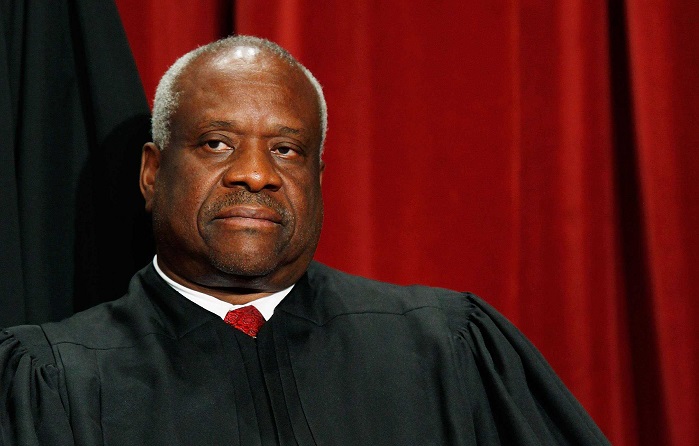The Georgia state Senate voted yesterday to create a monument to honor Supreme Court Justice Clarence Thomas, who is a native of the state.
The measure to honor Thomas now heads to the state House after it passed 32 to 21 in the state Senate. If approved, the monument, which will be paid for via private donations, will be on display in the state Capitol.
Some lawmakers said the statute should wait until Justice Thomas retires or has passed away. But said State Sen. Ben Watson, a Republican from Savannah who co-sponsored the bill for Thomas, said a statue already exists for former President Jimmy Carter, who is still alive.
“I didn’t agree with everything that President Carter did. He is a great Georgian and a president we should be proud of,” Watson said. “I would hope that you would feel the same way about Justice Thomas. He is a wonderful person.”
Thomas was born in Pin Point, Georgia and grew up in Savannah and he became the second black Supreme Court justice when resident George H.W. Bush nominated him in 1991.
Please follow LifeNews.com on Gab for the latest pro-life news and info, free from social media censorship.
Justice Thomas has repeatedly ruled in favor of pro-life laws to protect babies from abortion and he has once again gone on record multiple times stating that the Roe v. Wade ruling from 1973 that allowed virtually unlimited abortions should be overturned.
Previously, Justice Thomas listed three “incorrect decisions” he said used a faulty interpretation of the Fourteenth Amendment. Those included Obergefell v. Hodges, Roe v. Wade, and Dred Scott v. Sandford.
This wassn’t the first time Justice Thomas has indicated Roe needs to go.
Thomas hinted at his willingness to overturn the infamous abortion ruling Roe v. Wade in an opinion about a gun rights case. he questioned the high court’s tendencies to lean on precedent for its decisions.
“When faced with a demonstrably erroneous precedent, my rule is simple: We should not follow it,” Thomas wrote in his decision.
He said the court should not “elevate” court precedent over the U.S. Constitution, and some precedents are “demonstrably erroneous.” At one point in his decision, he mentioned the abortion case Planned Parenthood v. Casey. The 1992 case, which upheld Roe, says that states cannot place an undue burden on women’s access to abortion. Thomas dissented in the case.
Thomas said the court should “restore” its jurisprudence relating to precedents to ensure it exercises “mere judgment” and focuses on the “correct, original meaning” of laws it interprets.
“In our constitutional structure, our rule of upholding the law’s original meaning is reason enough to correct course,” Thomas wrote.








